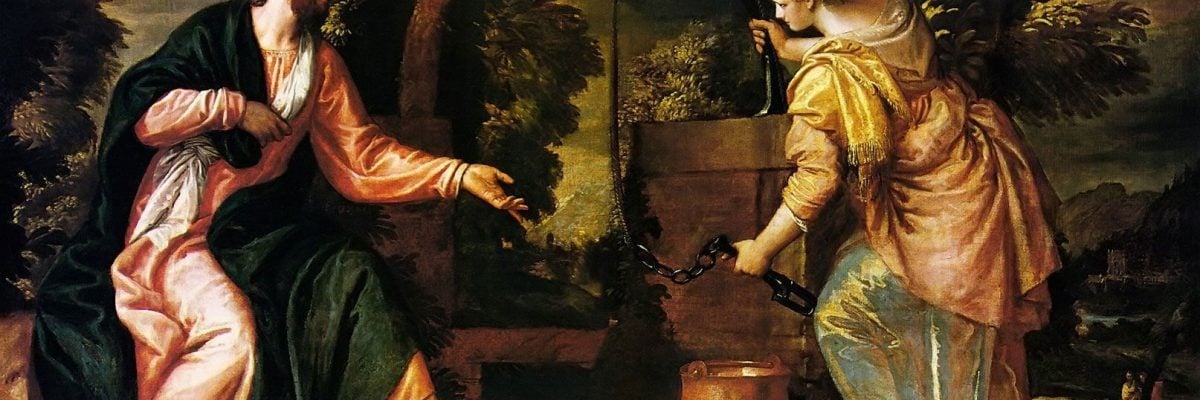
Homily for the Fourth Sunday of Easter, Year B
Many of the disciples of Jesus who were listening said,
“This saying is hard; who can accept it?”
Since Jesus knew that his disciples were murmuring about this,
he said to them, “Does this shock you?
What if you were to see the Son of Man ascending to where he was before?
It is the Spirit that gives life, while the flesh is of no avail.
The words I have spoken to you are Spirit and life.
But there are some of you who do not believe.”
Jesus knew from the beginning the ones who would not believe
and the one who would betray him.
And he said, “For this reason I have told you that no one can come to me
unless it is granted him by my Father.”As a result of this,
many of his disciples returned to their former way of life
and no longer walked with him.
Jesus then said to the Twelve, “Do you also want to leave?”
Simon Peter answered him, “Master, to whom shall we go?
You have the words of eternal life.
We have come to believe
and are convinced that you are the Holy One of God” (John 6:60-69).
“Perfect love casts out fear.” These are the words of the beloved disciple, St. John, who wrote the Gospel account that is being read this Sunday in Eastertide and who rested on the Lord’s breast when he celebrated the first Holy Eucharist on the night before he suffered. Love and fear are two closely related emotions, and the Savior had both of them, each in perfect degree: a true and pure and complete affection, and a genuine fear of the evils that might afflict him and those whom he loved.
It is perfectly natural that, as our love is greater, so is our fear of this love not being received or not hitting the mark. So, in the passage above, for sure we can see Jesus confronting his greatest fears as he expressed his greatest love. What do we call this fear fueled by a great love? We call it courage.
When one has a perfect love, then fear becomes fearlessness. Our Lord’s greatest fear was that men would reject the gift of salvation he came to give them, especially in its most powerful and tender-hearted form in the Blessed Sacrament. We can hear this fear in his pathetic words, “Do you also want to leave?” Yet he could not hold back his love, even while he knew that there would be those who would reject it as a “hard saying.” His perfect love cast out the fear of loss; indeed, it made him show the first example of his teaching “Greater love than this no man has, than that he give his life for his friends.”
When our dear Lord was teaching the crowds of Jews about the Holy Eucharist in the sixth chapter of John’s Gospel, he was giving them his heart, his burning love, the means of their salvation. But this meant also that he was beginning the sacrifice of his own life for them, which is what the Holy Eucharist is in essence: the offering of the Body and Blood of the Lord, given up and poured out for us sinners.
He knew that this very rejection was the necessary condition of his giving them this gift. That is the great paradox: that we are saved by the sacrifice that happened only because of our sins. At the Holy Mass we can really cry out, as the Church does on Holy Saturday, “O happy fault, o necessary sin of Adam which merited such and so great a redeemer!”
And yet this is hardly the whole story. Our Lord tells us at the Last Supper, “A new commandment I give you, love one another as I have loved you.” Our own individual lives must be modeled on the Lord’s eucharistic love. This means that we have to love our neighbor through and in spite of our fears; indeed, we must relate to others only according to the standard of the Lord’s love poured out into our hearts by his Holy Spirit and poured out upon the bread and wine at Holy Mass.
All of us have fears: that we will be rejected, misunderstood, mistreated, underappreciated, forgotten. But if we ask the Lord for a full measure of his love, we may find the courage not to live in fear, to be free to be ourselves; to be able to say and do what we ought without trying to fix others’ impressions of us; to love sincerely without complications or manipulations. This means to love with courage, saying, “Here is my gift, I give it freely, take it if you please, but in any case I will keep on giving it, even if you refuse it, since I am the child of the God whose very name is goodness and generosity, whose name is Love.”
Then we might find, as the Savior did, that the very thing we fear will be the source of the greatest good we do for others and will make our love really and deeply sincere and authentic. Often enough today people speak of what they call “tough love.” This tough love is not something we impose on others because we think they need it; it is rather something we take upon ourselves, being determined to love to the end, no matter what.
This is what will make us true Christians who have understood with St. Peter that with Christ alone, our courageous lover and friend who shares our fears and burdens, will we find the words and the substance of eternal life, the eternal life he promises to those who feed with love on his great gift, even his very self in the sacrament of the altar.
Image: Christ and the Samaritan Woman at the Well, Veronese



